Razer Blade 15 Advanced nabs 10th Gen 8-core Intel, RTX SUPER graphics, and 300Hz display
The Blade 15 Base and Advanced Models get new Intel 10th Gen chips, new storage options, and even an SD card reader. Here's what's new for 2020.
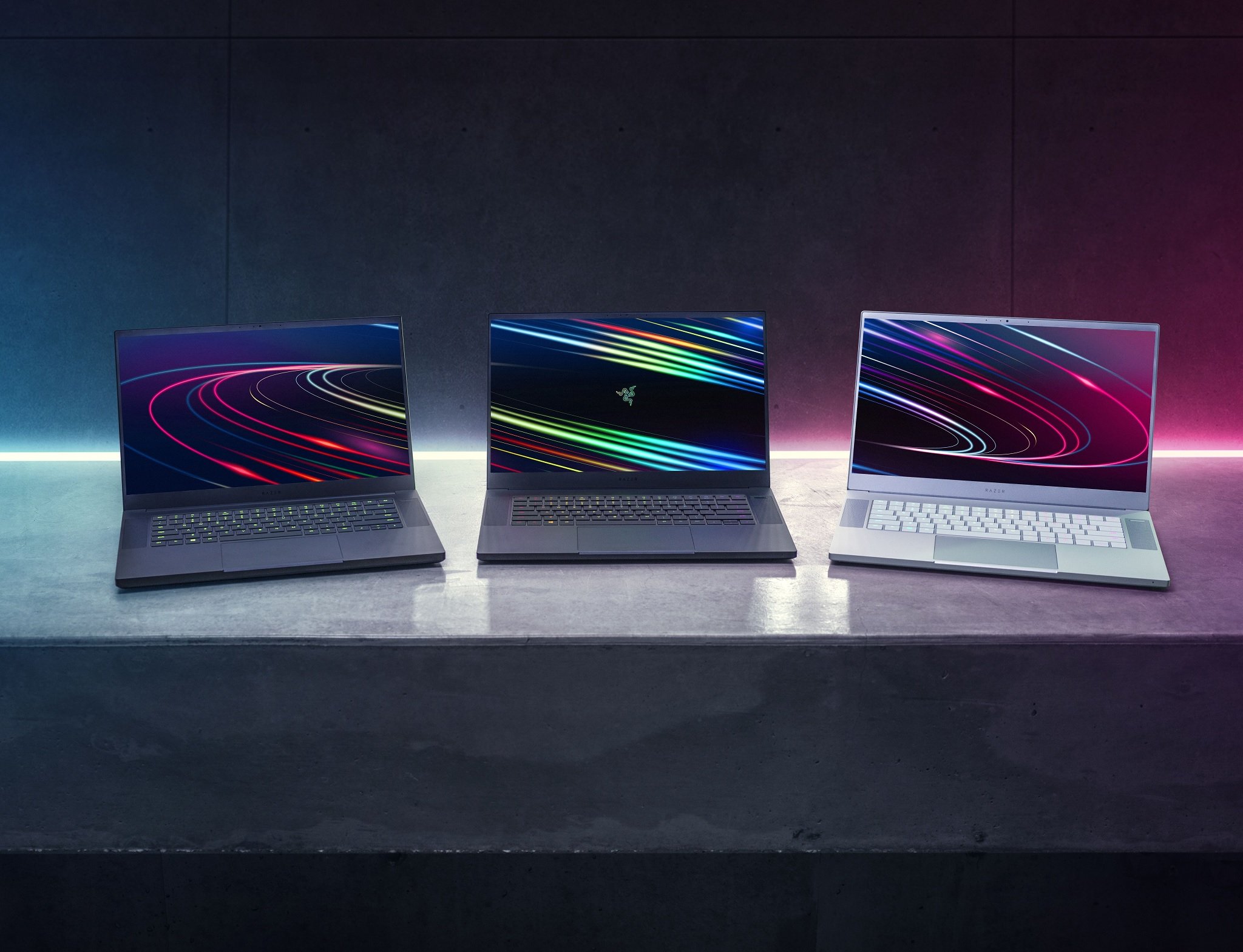
What you need to know
- Razer is updating the Blade 15 Base and Advanced for 2020.
- New Intel 10th Gen 6- and 8-core CPUs.
- NVIDIA RTX Super series graphics.
- 300Hz display option and SD card reader.
Razer is announcing a significant refresh to its popular Blade 15 Base and Advanced gaming laptops. Coinciding with news from Intel and NVIDIA, it is of little surprise that Razer is dropping in the latest hardware from both companies.
The result? A substantial boost in computing power, including up to a 25 percent increase in graphics performance over the last-gen for the Advanced model. That's all thanks to the new NVIDIA GeForce RTX 2080 SUPER.
Both the Advanced and Base Models are updated with many small but significant changes. Here's what's new.
The big daddy
Razer Blade 15 Advanced Model is an 8-core beast
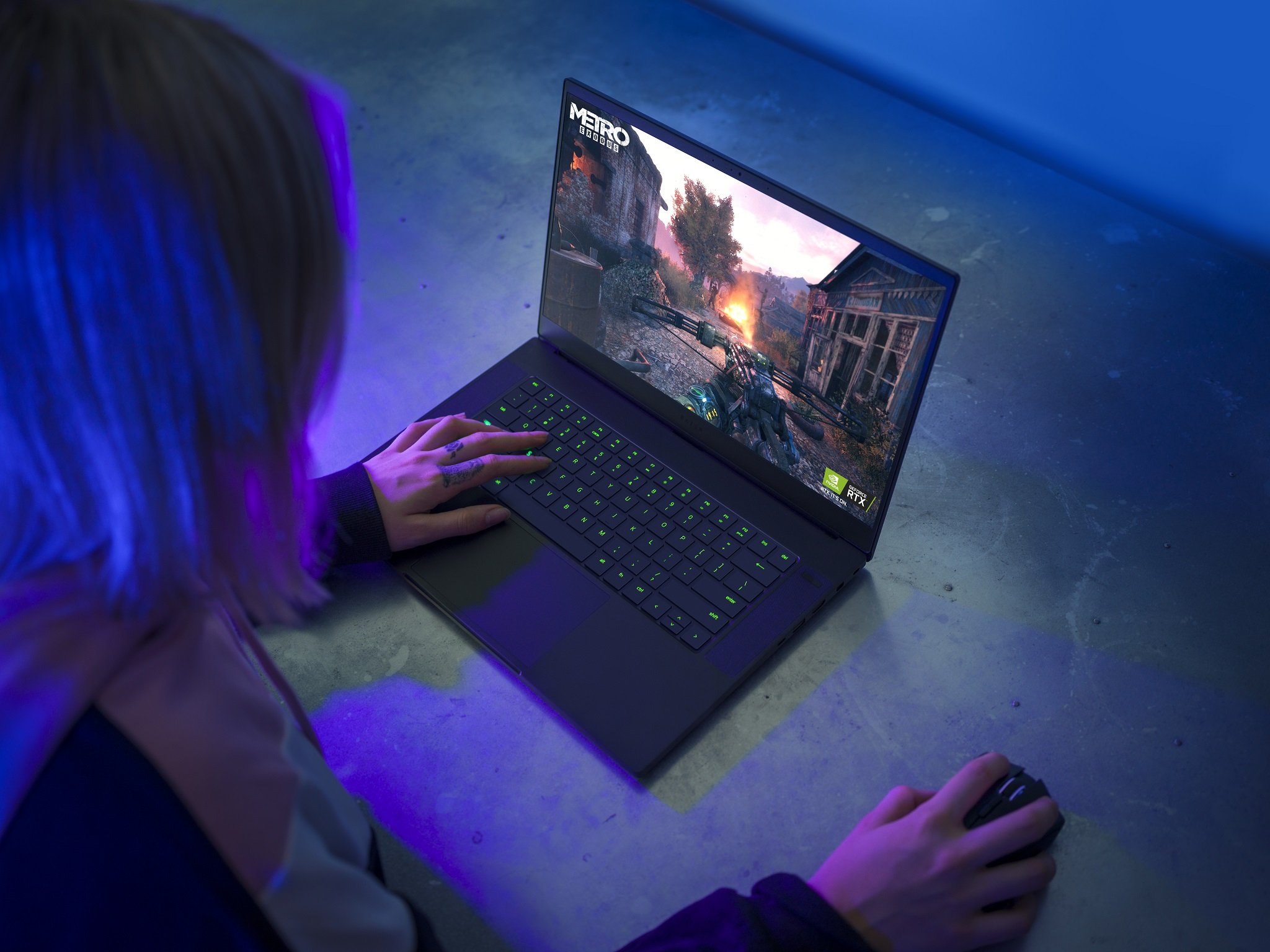
By utilizing Intel's just-announced 8-core 10th Gen Core i7-10875H with a top speed of 5.1GHz and 16MB of onboard cache, the new Blade 15 Advanced should be a powerhouse when combined with NVIDIA's latest GPUs.
The previous gen's CPU could only go up to 4.5GHz, for reference (see our review). Add more speed and two more cores, and you have juggernaut.
| Category | Spec |
|---|---|
| CPU | 10th Gen Intel Core i7-10875H (5.1GHz) |
| GPU | NVIDIA GeForce RTX 2080 SUPER GPU with Max-Q design |
| Display | 300Hz Full-HD display (4K OLED display also available) |
| Wi-Fi | Intel Wi-Fi 6 AX201 (Gig+) |
| RAM | 16GB 2,9333MHz DDR4 (upgradable to 64GB) |
| Keyboard | Extended right shift key and half-height directional keys |
| Storage | Supports up to 4TB SSD |
Matching that bump is speed is the expected, albeit overkill, 300Hz full HD display up from last year's 240Hz. For creators and pros, the 4K OLED touch option with 100 percent DCI-P3 and 1ms response is also still an option.
Get the Windows Central Newsletter
All the latest news, reviews, and guides for Windows and Xbox diehards.
Besides the new hardware, though, Razer is doing some other smart things that its fans have requested.
Last year, the Advanced Blade 15 did not have an SD card reader (but the new Blade 15 Studio does). No longer is that the case. Razer is ditching the Mini DisplayPort 1.4 and instead is giving pros a full UHS-III SD card slot like the Studio edition and Blade Pro 17.
There's also now a second Type-C 3.2 Gen 2 port in addition to the Thunderbolt 3 one.
Base storage also jumps from the entry-level 256GB to 512GB and maxes at 1TB now instead of 512GB. Additionally, Razer has confirmed with us that the new Blade 15 Advanced Model can support a 4TB SSD, too, should you wish to upgrade it yourself.
| Category | Spec |
|---|---|
| OS | Windows 10 Home |
| Processor | 10th GenIntel Core i7-10875HEight coresUp to 5.1 GHz |
| RAM | 16GB dual-channelDDR4-2933MHzUp to 64GB |
| Graphics | NVIDIA GeForce RTX 2070 Super with Max-QNVIDIA GeForce RTX 2080 Super with Max-QOptimus |
| Storage | 512GB or 1TB PCIe 3.0 (x4) NVMe SSDSupports up to 4TB |
| Display | 15.6 inchesFull HD (1920 x 1080) at 300Hz (matte)OLED 4K Touch at 60 Hz, 100% DCI-P3 |
| Ports | SD card slot (UHS-III)USB 3.2 Gen 2 Type-A x2Thunderbolt 3 with PD 3.0 (USB-C)HDMI 2.0B outputUSB Type-C 3.2 Gen 2 |
| Audio | Dual speakersDolby Atmos Support |
| Wireless | Intel Wireless-AX201 (802.11a/b/g/n/ac/ax)Bluetooth 5.0 |
| Camera | Front-facing 720pWindow Hello IR |
| Biometrics | IR camera |
| Keyboard | Per-key RGB Razer Chroma |
| Touchpad | Precision |
| Battery | 80 WHr230W power adapter |
| Size | 0.70" x 9.25" x 13.98"17.8mm x 235mm x 355mm |
| Weight | 4.73 - 4.87 lbs (2.15 - 2.21 kg) |
| Price | $2,599 to $3,299 |
Even the keyboard gets tweaked. One major complaint from users of the last Blade 15 (both Base and Advanced) was the gimped right shift key, which is shorter than on most laptops. Razer did that to accommodate full-sized directional arrow keys. Now, that is revered, making the Blade 15 a bit more normal.
Pricing has jumped slightly to $2,600 for the entry-level version up from $2,400 before due to the increased storage and features. Sadly, as of now, the mercury white edition is not part of this updated series.
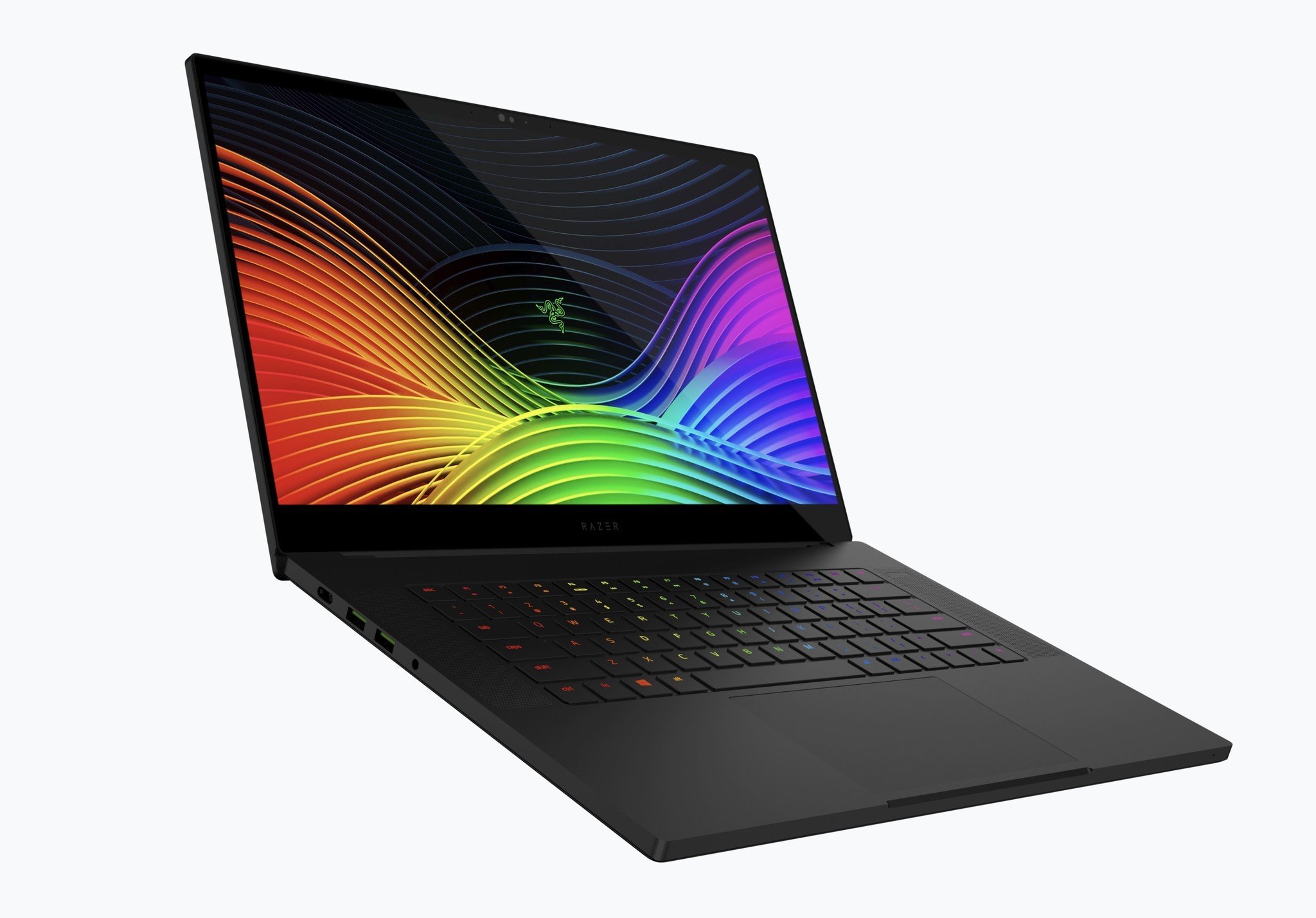
Go big or go home
The Razer Blade 15 Advanced Models offer high-end performance and a wide range of specs options. For 2020 it gets a new 300Hz display, 10th Gen 8-core processor, and NVIDIA's new line of Super RTX graphics cards with Max Q design. Plus, there is now an SD card reader.
The more affordable version
Razer Blade 15 Base Model gets 144Hz display
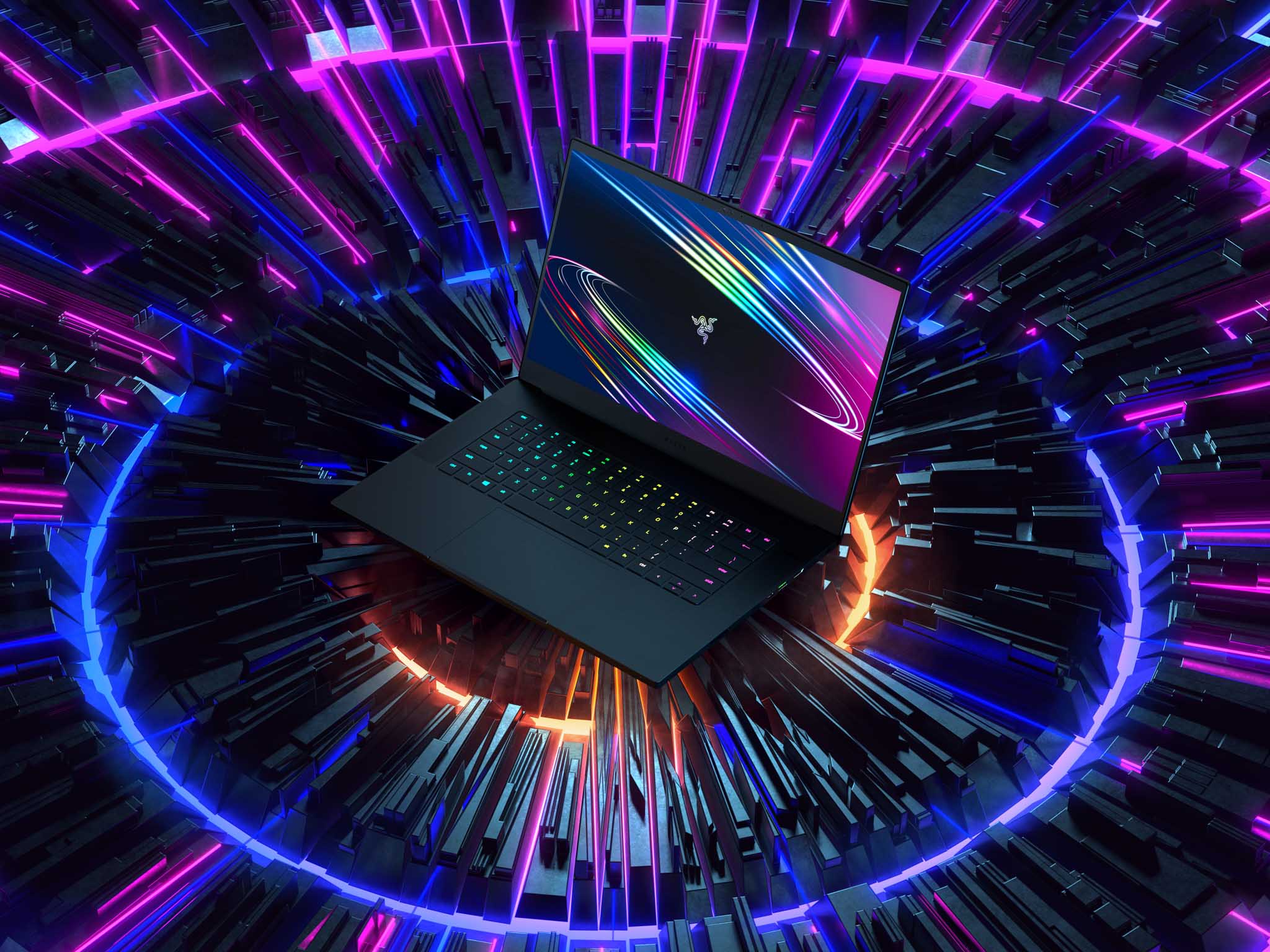
Razer is also updating the more affordable base model with some similar changes. Instead of an 8-core Intel processor, Razer is using the new 6-core Intel Core i7-10750H with turbo up to 5.0GHz. The previous Core i7-9750H was also six cores, but it maxed out at 4.5GHz.
For graphics, options range from the GeForce GTX 1660Ti, RTX 2060, and RTX 2070, some of the best graphics cards out there. RAM is also the faster 2,933MHz variety with 16GB (upgradable to 64GB), and storage is either 256GB PCIe or 512GB PCIe, and both have an open M.2 slot for user-added storage. That also means no slower HDD, thankfully.
Matching the Blade 15 Advanced Model, the Base Model gets the new layout options with the full-sized shift key and smaller directional arrows. However, unlike the Advanced, the Base only gets single-zone RGB instead of the Advanced's per-key Chroma RGB.
| Category | Spec |
|---|---|
| OS | Windows 10 Home |
| Processor | 10th GenIntel Core i7-10750HSix coresUp to 5.0 GHz |
| RAM | 16GB dual-channelDDR4-2667MHzUp to 32GB |
| Graphics | NVIDIA GeForce RTX 1660TiNVIDIA GeForce RTX 2060 with Max-QNVIDIA GeForce RTX 2070 with Max-QOptimus |
| Storage | 256GB or 512GB PCIe 3.0 NVMe SSDEmpty M.2 slot |
| Display | 15.6 inchesFull HD (1920 x 1080) at 144Hz (matte)4K OLED with Touch 100% DCI-P3 |
| Ports | USB 3.1 Gen 1 Type-A x2Thunderbolt 3 (USB-C)USB Type-C 3.2 Gen 2HDMI 2.0B outputGigabit Ethernet |
| Audio | Dual speakersDolby Atmos Support |
| Wireless | Intel Wireless-AX201 (802.11a/b/g/n/ac/ax)Bluetooth 5.0 |
| Camera | Front-facing 720pWindow Hello IR |
| Biometrics | IR camera |
| Keyboard | Single-zone RGB Razer Chroma |
| Touchpad | Precision |
| Battery | 65 WHr230W power adapter |
| Weight | 4.63 lbs (2.10 kg) |
| Size | 0.78" x 9.25" x 13.98"19.9mm x 235mm x 355mm |
| Price | $1,599 to $2,299 |
Perhaps the most significant change, however, is the shift away from a slow 60Hz display to a much better 144Hz full HD as a starter. Users can also now grab that 4K OLED panel with touch with a starting price of $2,299 ($1,000 less than the similar Advanced Model).
Instead of a Mini DisplayPort, there is also now a second Type-C 3.2 Gen 2 one (in addition to the Thunderbolt 3 port).
The Razer Blade 15 Base Model starts at a modest $1,599 for that new Core i7, GTX 1660TI, 144Hz display, 256GB SSD, and 16GB of storage.
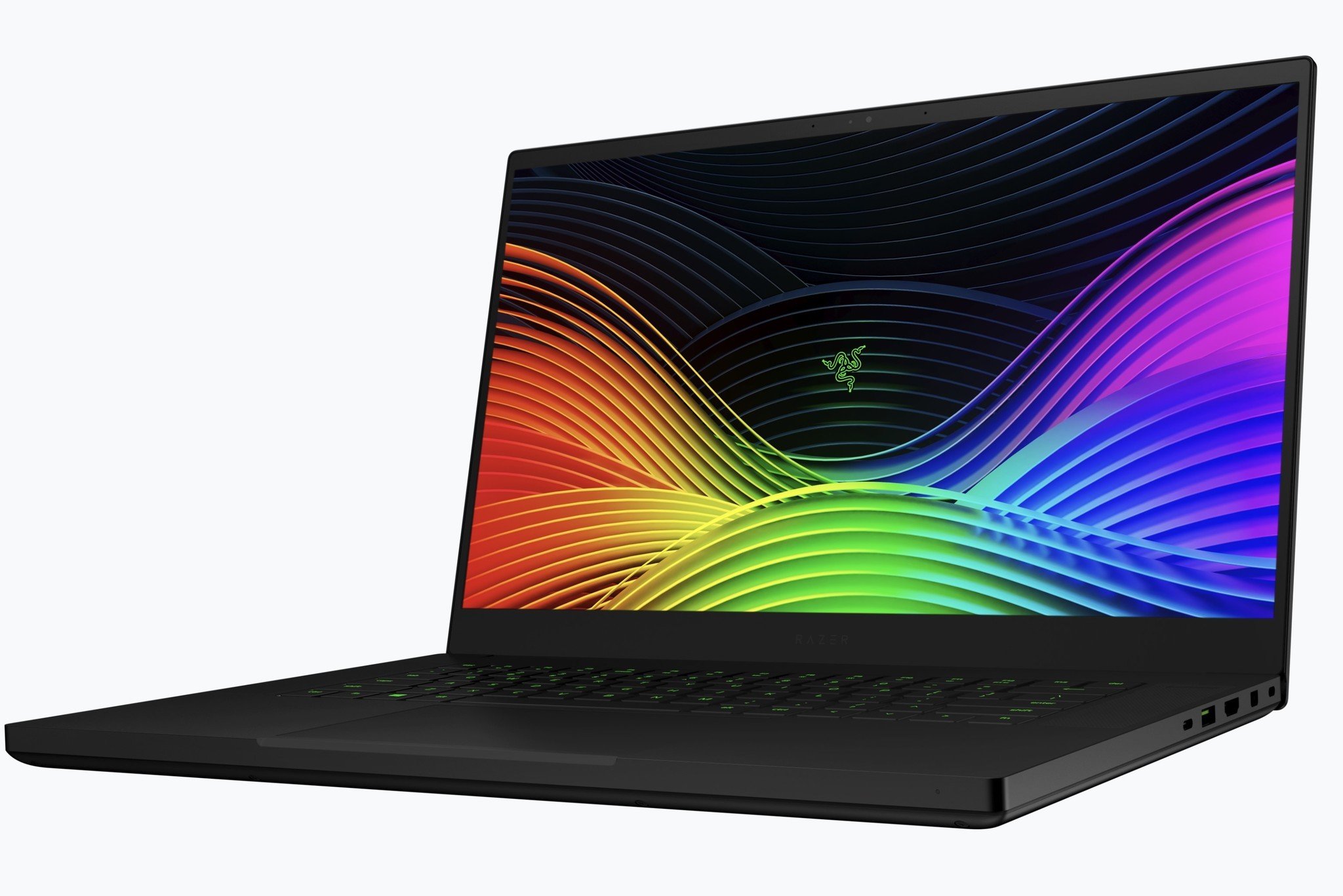
Solid gaming at a fair price
While more affordable than the Advanced Model, the Blade 15 Base now offers a 144Hz display by default, a fixed shift key design, extra Type-C port, and a faster Core i7-10750H processor. A 4K OLED option is now available too. Plus, there is no slower HDD, and you get more SSD storage options.
Availability
The all-new Razer Blade 15 will start at USD 1,599.99 / 1,799.99€ MSRP and will be available beginning in May at Razer.com and through select retailers in the United States and Canada. The Razer Blade 15 will come soon to Razer.com and select retailers in Europe, China, Asia Pacific, and the Middle East.

Daniel Rubino is the Editor-in-chief of Windows Central. He is also the head reviewer, podcast co-host, and analyst. He has been covering Microsoft since 2007 when this site was called WMExperts (and later Windows Phone Central). His interests include Windows, laptops, next-gen computing, and wearable tech. He has reviewed laptops for over 10 years and is particularly fond of 2-in-1 convertibles, Arm64 processors, new form factors, and thin-and-light PCs. Before all this tech stuff, he worked on a Ph.D. in linguistics, performed polysomnographs in NYC, and was a motion-picture operator for 17 years.
